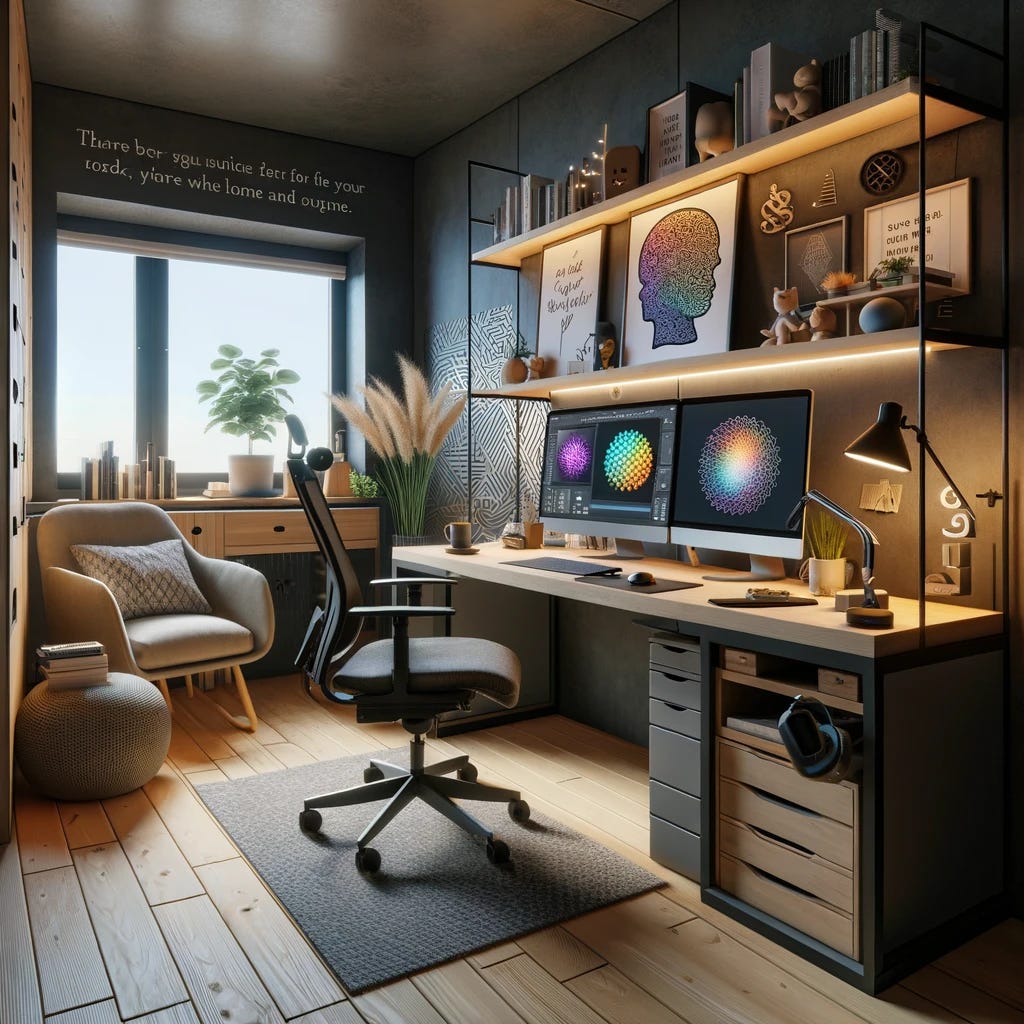Traditional coaching and therapy workshops I’ve attended on helping adhd people with work issues have long stressed the importance of changing yourself.
Align your behaviors with organizational objectives!
Work to overcome setbacks!
Improve your employability!
Develop a growth mindset!
Get better at welcoming negative feedback so you can grow!
Modify your habits and routines to help improve your business’s efficiency!
Find a way to work harder and do better!
Treat failures as stepping stones for self-development. This is good for you!
I’ve sat for years in these workshops, dutifully taking notes, and felt sick to my stomach.
Taking a moment to check in with the unease in my stomach, I was reminded of my frustration when I worked with children and sat in the IEP meetings, where the narrative often was that children just weren’t trying hard enough.
Mental and medical health professions continue to fail people with ADHD by completely ignoring the necessity for neurodiversity affirmation in various environments, including workplaces.
Standard advice on adhd in the workplace needs to change.
This conventional approach mistakenly places the responsibility of adaptation on the individual, implying they need to 'fix' themselves.
It fails to acknowledge that many workplaces do not provide the necessary support for neurodivergent individuals, thus perpetuating a damaging narrative, encouraging masking, and doing harm.
Instead, we need to recognize that :
Most workplaces do not actively support or celebrate neurodiversity, making feedback often irrelevant and potentially harmful.
This advice from therapists unfairly demands individuals to adjust to non-affirming environments, which encourages masking, causing trauma.
There is significant discomfort in the push for individuals to internalize and adapt to criticism that disregards their needs, highlighting the discrimination and lack of support from systems meant to assist them.
A shift in perspective is needed, moving away from placing undue pressure on individuals with ADHD to 'work harder' at accepting criticism.
Instead, we must advocate for workplaces to develop genuinely inclusive and neurodiversity-sensitive cultures.
This includes:
Recognition of Diversity as an Asset
Tailored Training for Management and Staff:
Flexible Work Arrangements:
Mentorship programs
Inclusive Hiring Practices:
Accessible Accommodation, including work-from-home options
Advocating for a future where workplaces not only accommodate neurodiversity but actively embrace and celebrate it is crucial.
By fostering a more inclusive, understanding, and supportive professional world, genuine support and protection for individuals with ADHD can be achieved, countering the discrimination currently faced within the systems designed to help them.
Thanks so much for reading today’s issue. If you like it pass it on.






